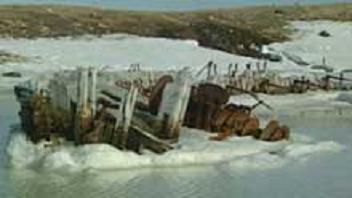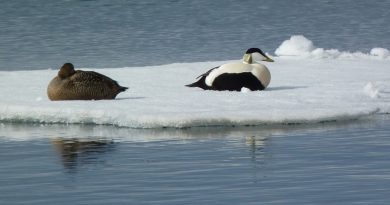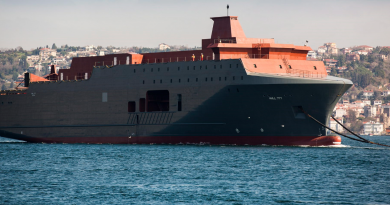What War in the Arctic Looks Like
A number of books, reports and articles in the past years, and months, have hinted at the possibility of conflict in the Arctic. The narrative is the familiar one of states fighting over scarce oil and gas resources in the largely unexplored and unpatrolled Arctic. Of course everyone expects that Russia would be the aggressor in this scenario, with a new ‘cold’ war erupting between East and West.
The narrative has had policy consequences. Every one of the Arctic states, save Sweden, has issued an Arctic policy statement in the past two years. Russia, Norway and Canada have announced significant new northern military investments. The Nordic countries have established a joint defensive forum (NORDEFCO) to coordinate military training, operations and acquisitions. If, as some Canadian academics, politicians and journalists have warned, ad nauseum, that we are at the brink of losing control over our Arctic waters, it is worth reflecting what exactly this would entail.
First, let’s exclude the possibility of a land invasion in the Arctic. There are many practical reasons for this – nowhere to dock, no infrastructure to support modern armies, nowhere to go and nothing to take. (Lester Pearson called this the ‘scorched ice’ policy – neglect the northern military infrastructure and you will have nothing for an enemy to use against you in an attack!) But mainly, there would be no point. No gains, neither economic, strategic nor political, could be made with an attack on land. It is far more likely that an enemy would engage in an attack from the sea or air because of the speed and flexibility inherent in that tactic. Such a conflict would entail “short, sharp and in essence punitive military actions, orchestrated in extremely close interaction with political initiatives and diplomacy”.
War, to extract from Clausewitz’s famous dictum, is politics by other means. The political objectives in the Arctic are primarily economic in nature – controlling shipping lanes and oil and gas exploitation in particular. In no circumstance would conflict actually promote the political objectives of any of the Arctic states. Shipping will not develop apace if there is insecurity, tension, and a patchwork of uncoordinated national regulatory regimes. No major oil company will invest the billions of dollars necessary to explore in the Arctic in disputed territory. The Arctic states, and yes, even China, have the same goals in the Arctic, because economic development, unlike security, is not a zero sum game. They all gain if there is a robust shipping industry, both to offset infrastructure costs and to decrease the cost of transporting goods within the Arctic and between markets. And an oil discovery in Greenland won’t depreciate the gas fields of Russia; in fact, there could be savings from duplicating technologies as more developments occur in the icy waters of the Arctic. In short, there is no rational reason – no gain to be made – through conflict in the Arctic.
Of course, states are frequently irrational. But even in the worst case scenario – a limited attack from air or sea – losses would be minimal, with at most a handful of casualties and limited damage to infrastructure. (Political fallout would of course be a different story, but that is what makes the scenario so unlikely.) We can probably count on Canada, Norway, Russia and the others to act in their economic best interests by avoiding the instability and tension even a limited attack would engender.
This is not to say that there isn’t irrationality and insecurity in the Arctic. The BP oil spill in the Gulf of Mexico has taken 11 lives, will cost up to $40 billion in clean-up and compensation, and has wreaked unaccountable damage to wildlife and ways of life. Greenland starts drilling this summer. The Snohvit field in Norway started production in 2007 and the Shtokman field in Russia is slated to begin producing by 2016. It is time for all of us to stop devoting so much attention to a conflict that will probably never happen, and start working on how to mitigate the environmental disaster that almost certainly will.



